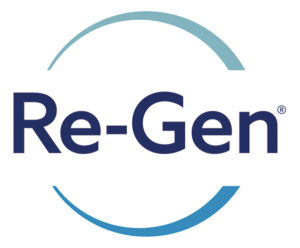Adopting a box system will cost ratepayers an extra £90 million per year

Full consideration has not been given to a co-mingled recycling service option, currently the most popular choice of councils in Northern Ireland, for increasing recycling rates of household waste, according to Joseph Doherty, Managing Director of Re-Gen Waste Ltd.
“The positive impact of a co-mingled collection, including glass for dry recyclates in a wheeled bin, is not fully appreciated. This recycling service option delivers the greatest rates of landfill diversion,” explains Doherty.
“The Welsh model, which uses a box sorting system, is often held up as having the third highest recycling rate in the world. However, in a DEFRA parliamentary committee meeting this year, Daniel Roberts, LARAC West Midlands Representative/Vice Chair/Policy Lead, noted that Wales’ recycling performance is calculated to include recycled material from ‘incinerator bottom ash’, which adds 5.5 to 6 performance points to their figures. If this was done in England, Scotland and Northern Ireland, it would put our recycling performance well ahead of target.
“The net cost of the services in Wales has also doubled in 13 years, with the Welsh Government funding the services for 2.5 to three million people, to a tune of £60 to £70 million a year. A similar scheme proposed for Northern Ireland would cost ratepayers £90 million, to introduce the system and fund new infrastructure.”
Doherty refers to the DAERA LAC Municipal Waste Report 2018/19, which confirms that a co-mingled collection including glass, delivers up to nearly 30 per cent of the participating councils’ recycling rates and that Northern Ireland’s top five recycling councils provide their householders with a co-mingled recycling service, including glass. In a Lucid Talk survey* conducted across the 11 councils last year, 81 per cent of householders in council areas offering co-mingling with glass, said they were happy with the service and 35 per cent said they’d recycle less if they had to place their glass in a separate caddy.
He advised that we should be consulting with these top performing councils, to facilitate and encourage overarching lessons to be learnt from best practice, in order to help local authorities, move towards the best possible recycling service for their area.
Doherty adds: “It is clear that a kerbside sort system does not deliver either the same volume of recyclates or landfill diversion rates, so councils, ratepayers and the environment will pay the price, if kerbside sort is enforced.
“There are 751,197 households in Northern Ireland, if a co-mingled collection including glass was introduced across the board, it is our estimation that c.138,000 tonnes of dry recycling could be captured. This is nearly 35,000 tonnes more than what was captured in 2018/19 (103,417).”
Moreover, he says: “A kerbside sort system is actually more expensive to deliver on an annual basis than a co-mingled system. It is my understanding that it takes three times longer and more manpower to empty and sort kerbside boxes, so the inevitable knock-on effect of this is shorter collection rounds, more collection vehicles and crew.”
Since Covid-19, changes have been made to the kerbside sort scheme, due to health and safety implications. Paper and card are now co-mingled in the top box, plastic, metals and tetra packs are co-mingled in the middle box and glass in the bottom box.
Doherty questions the implication that high-quality recycling is reliant on having materials sorted directly by householders, as opposed to mixed or comingled collections. He says: “Since co-mingling of materials is happening, even in the kerbside sort system, the argument that co-mingling isn’t producing quality materials, is moot.
“And the biggest misconception is, that the kerbside sort system doesn’t contain contamination. Contamination is still present in this collection system; the difference is that it is left in the box and the householder empties it into their residual bin. This material then ends up in landfill at a cost of £120 per tonne, resulting in an increased cost to councils.
“Tens of millions of pounds has been invested in Re-Gen’s plant, which is designed to deal with any level of contamination, in tandem with producing high end products that are being sold to manufacturers in Northern Ireland, or where we can get the best price for the materials, a positive for council budgets and the ratepayer.
“We don’t have to reject any waste from councils and where it is simply impossible to recycle contaminated material, it is passed over to SRF production, where it offsets fossil fuel use in cement kilns.
“Convenience, simplicity, education and value for money, is key to increasing council recycling rates,” he concludes.
T: +44(0)28 3026 5432
E: info@regenwaste.com
W: www.regenwaste.com
*Research commissioned by Re-Gen Waste Ltd. Polling was carried out by Belfast based polling and market research company LucidTalk. The project was carried out online for a period of 7 days from 13th March to 20th March 2019.






